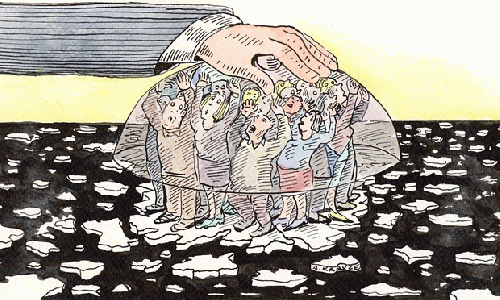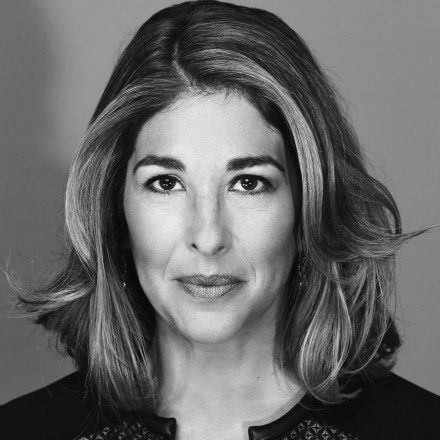Reprinted from The Guardian

'The one that preoccupies me most is that core question of whose security is ultimately valued in our lopsided world.'
(Image by Illustration: Andrzej Krauze) Details DMCA
Whose security gets protected by any means necessary? Whose security is casually sacrificed, despite the means to do so much better? Those are the questions at the heart of the climate crisis, and the answers are the reason climate summits so often end in acrimony and tears.
The French government's decision to ban protests, marches and other "outdoor activities" during the Paris climate summit is disturbing on many levels. The one that preoccupies me most has to do with the way it reflects the fundamental inequity of the climate crisis itself -- and that core question of whose security is ultimately valued in our lopsided world.
The next thing to understand is that even in these rare moments, frontline voices do not have enough of a platform in the official climate meetings, in which the microphone is dominated by governments and large, well-funded green groups. The voices of ordinary people are primarily heard in grassroots gatherings parallel to the summit, as well as in marches and protests, which in turn attract media coverage. Now the French government has decided to take away the loudest of these megaphones, claiming that securing marches would compromise its ability to secure the official summit zone where politicians will meet.
Click Here to Read Whole Article
|
Rate It | View Ratings |
Naomi Klein is the author of The Shock Doctrine: The Rise of Disaster Capitalism, now out in paperback. To read all her latest writing visit www.naomiklein.org

OpEdNews depends upon can't survive without your help.
If you value this article and the work of OpEdNews, please either Donate or Purchase a premium membership.
If you've enjoyed this, sign up for our daily or weekly newsletter to get lots of great progressive content.
Most Popular Articles by this Author: (View All Most Popular Articles by this Author)
Our Lives Are Under Threat From Some of the Most Powerful and Richest Entities -- Here's How We Can Fight Back and Win
Gulf oil spill: A hole in the world
Occupy Wall Street: The Most Important Thing in the World Now
Hurricane Sandy: beware of America's disaster capitalists
HopeOver, HopeLash, HopeBreak: A Lexicon of Disappointment
Capitalism vs. the Climate
To View Comments or Join the Conversation:




